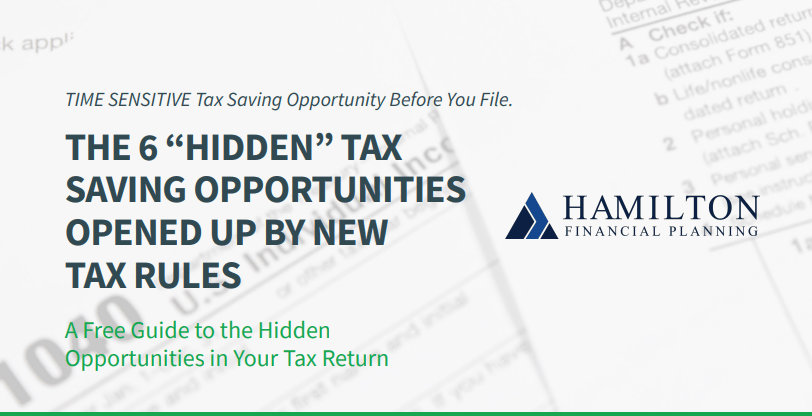What You Need to Know About Stocks and Bonds Before You Invest
We’re back with another installment of our Investing Basics Series. We covered the Three Options for Budgeting and the Different Types of Investment Accounts available. This month we’re going to talk about the different types of securities you can buy within those investment accounts.
Table of Contents
What You Need to Know About Stocks and Bonds Before You Invest
First things first: What is security?
Security is a tradable financial asset. This means that you can sell the asset, in our case stocks and bonds, to someone else in the hopes of making a profit.
Securities can be broken into two broad categories.
There are equity securities such as common stocks, and debt securities, like bonds.
These are the two securities we are going to focus on this month. Next month we’ll get into a couple more.
Stocks
A stock is an investment that represents a share in a company. Whenever you buy a stock, you’re buying a piece of the issuing company. This makes you a Shareholder. You share in the company’s profits and losses.
The goal of buying stock is to grow your money, outpace inflation, and ultimately, be able one day to sell the share for more money than you paid for it.
Companies sell stocks (i.e., pieces of their company) to raise money so they can grow and invest in their business.
We recommend holding onto stocks for the long term so that, over time, the stock will increase in value. It’s important to remember that because on a day to day basis stock prices tend to fluctuate. And if you focus only on price fluctuations, you tend to make knee-jerk reactions rather than financially sound decisions.
How do you make money by owning stocks?
There are two ways to make money from owning stocks.
- ACCRUING DIVIDENDS
Dividends are regular payments by the company to the Shareholders from its profits (or reserves). These payments are usually paid out quarterly.
You can reinvest these dividends back into that company. This allows for price appreciation and earning compounded interest without incurring a brokerage fee.
The alternative to reinvesting the dividends is to receive a cash payout.
You will have to pay taxes on this dividend income – whether it is reinvested or received as cash.
It’s important to note that not all companies will payout dividends. Companies are not required to pay any dividends, but they may choose to give portions of their earnings back to Shareholders as an incentive to keep investing in their company.
2. SELLING STOCKS
If the price of the stock increases during the time you own it, you can sell the stock thus making a profit because you sold it for more than you paid for it.
There are Two Types of Stocks
- COMMON STOCKS
Common stock is typically what most investors own. These are shares in public companies.
They may pay dividends, but dividends are not guaranteed and the amount paid is not fixed.
2. PREFERRED STOCK
These stocks typically pay fixed dividends so owners can count on a certain income from that stock annually.
These Shareholders are also first priority when it comes to receiving the company’s earnings. If the company goes bankrupt, preferred stock Shareholders receive any liquidation of assets ahead of common-stock owners plus they are the first to receive any excess cash distributed via dividends.
Key Things to Remember About Stocks
- Investors who do the best over the long term buy stocks and hold them. This means you own a diversified portfolio of many stocks and hold on to them through the good and bad times.
- It’s important that you research the companies you are thinking about investing in before you buy their stock. As a potential Shareholder, you want to make sure that the company you are about to own a piece of is worth your investment. Companies can lose value or go out of business leaving the Shareholder with a partial or total loss in their investment.
Why and How to Do Research
The average annual market return is between 7% and 10% over the last century. So be cautious of any company claiming higher percentage returns. This is why doing your research is so valuable.
Check Morningstar.com for comprehensive market research and trends.
A lot of investors opt to invest in stocks through mutual funds, index funds, and ETFs instead. These types of securities allow you to buy a lot of stocks in a single purchase. This offers instant diversification and makes investing a little less intimidating.
I will be diving into mutual funds, index funds, and ETFs in our June Blog.
Bonds
Bonds are considered conservative, reliable investments that provide stability and income to your portfolio.
Bonds are debts. Companies, and federal, state, and local governments issue bonds, and when the investor, “buys” bonds, they are actually lending the government or business money for a certain period of time. In return, the government or company promises to repay the investor in full plus interest.
You can think of bonds as similar to mortgages. When a homeowner buys the home, the bank lends the homeowner money. The homeowner then repays the bank a monthly payment plus interest for the next 30 years until the home is paid off. In this scenario, the investor is the bank, and the government/company is the homeowner.
How Bonds Work
Let’s say you buy a bond for $1,000 and you lend this money for 10 years. Bonds pay back annually a regular amount, known as the coupon rate or interest rate, which provides a reliable income. Let’s say the coupon rate for your $1,000 bond is 5%.
$1,000 X .05 = $50
This would pay you $50 a year each year you lend the bond. When the bond matures after 10 years you receive your original investment plus the agreed to rate of interest.
By the end of the 10 years, you will have received your original $1,000 back, as well as made a $500 profit.
$50 X 10 years = $500
You can buy a bond that matures – i.e., the length of time you’re lending the money – anywhere from 1 to 30 years.
It’s important to remember that the borrower could go bankrupt before paying off their debt. This would leave you at a loss.

Which Bonds are the Safest?
- US GOVERNMENT BONDS
Also called Treasuries, are considered the safest investments because they are backed by the “full faith and credit” of the United States. However, because these bonds offer the lowest risk, they tend to have the lowest returns.
- STATES AND LOCAL GOVERNMENT BONDS
These bonds are the next safest investment. They go towards funding local projects such as building schools. These bonds may be exempt from state and local taxes if they’re issued in the state or city where you live.
3. CORPORATE BONDS
Companies use bond payments to buy new equipment, invest in research and development, financing mergers and acquisitions, to pay dividends to Shareholders.
Key Things to Remember About Bonds
- BOND RATINGS MATTER
Bonds are graded by rating agencies like Moody’s and Standard & Poor’s (S&P).
The higher the rating, the lower the risk that the borrower will default.
- INTEREST RATES OF BONDS MATTER
A bond’s interest rate is tied to how creditworthy the issuer is. Treasuries offer a lower interest rate because there is considerably less risk the federal government will go bust than a less than reputable company.
On the other hand, that less than reputable company might offer a higher rate on bonds it issues because of the risk the firm could fail before paying off the debt is much higher. The interest rate is fixed at the time the bond is purchased and it is paid on a regular basis, which I explained in the How Do Bonds Work Section above.
As interest rates rise, bond prices fall. This obviously makes existing bonds with lower rates less valuable. This happens because when rates go up, new bonds are issued at the higher rate.
- HOW LONG YOU HOLD ONTO BONDS DOES MATTER
Longer term bonds are vulnerable to interest rate changes. However, bonds with longer duration pay higher yields. This happens because you’re being paid for lending your money for a longer period of time.
Why Should You Invest in Bonds?
- BONDS ARE AN IMPORTANT PART OF A BALANCED AND DIVERSIFIED PORTFOLIO.
Including bonds in your portfolio helps balance out risks over the long run; if the stock market plummets, bonds can cushion the blow.
You also want to make sure you diversify the types, lengths, and issuer of the bonds you purchase.
- BONDS HELP SECURE YOUR NEST EGG THE CLOSER YOU GET TO RETIREMENT.
The closer you get to retirement, the less time you have to ride out market fluctuations that might erode your nest egg. You should shift your asset allocation from buying stocks to buying more bonds.
If you would like more in-depth advice about Stocks and Bonds or if you would like for someone to help you manage your accounts, please give us a call or schedule a Get Acquainted Meeting. We would love to hear from you!
Get The Insurance Coverage You Need
If you are still unsure as to whether or not you need an umbrella policy, our team at Hamilton Financial Planning can help! Schedule a complimentary get-acquainted meeting online or reach out to us at 512-261-0808 or scott@hamiltonfinancialplanning.com.
About Scott
Scott Hamilton is the founder and chief financial officer at Hamilton Financial Planning, a wealth management firm that specializes in providing comprehensive financial planning for retirees in Dallas, Houston, and Austin, Texas. With over 20 years of experience in the financial industry, and has completed over 250 financial plans for retirees across all industries, but mostly the oil and gas industry, Scott is passionate about providing his clients with the tools and insight they need to achieve their financial goals.
He has a Bachelor of Business Administration in finance from Texas State University and an MBA in international finance from Pepperdine University. Scott has also been happily married to his wife, Gayle, for over 25 years. To learn more about Scott, connect with him on LinkedIn.

